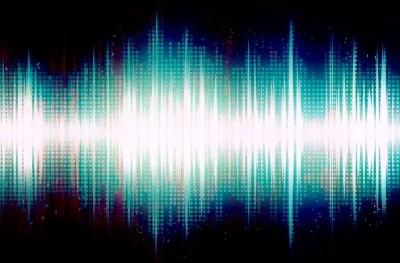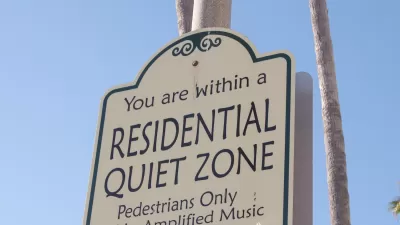The world is noisier than ever, and the long-term effects of exposure are serious. Still, noise pollution isn’t considered a legitimate environmental hazard.

"Noise is never just about sound; it is inseparable from issues of power and powerlessness. It is a violation we can’t control and to which, because of our anatomy, we cannot close ourselves off," writes Bianca Bosker. In this feature piece, she examines the increase in noise, in cities as well as in the most remote of places, and the physical and psychological toll on humans and animals.
Research has clearly shown that noise impacts health in a number of ways, reports Bosker. "Large-scale studies show that if the din keeps up—over days, months, years—noise exposure increases your risk of high blood pressure, coronary heart disease, and heart attacks, as well as strokes, diabetes, dementia, and depression." Yet noise pollution is not recognized as a public health threat and regulation has been inconsistent.
Bosker notes the many sources of noise in the modern world, but she describes in much more detail the particular case of data centers. Residents living near these complexes say the constant humming from the chillers at these huge complexes is unbearable. "Noise, having emancipated itself from the human hand, is becoming autonomous and inexhaustible. Human noisemakers have to sleep, but our mechanical counterparts, which do not tire, die, or strain their vocal cords, can keep up a constant, inescapable clamor," adds Bosker.
FULL STORY: Why Everything Is Getting Louder

Planetizen Federal Action Tracker
A weekly monitor of how Trump’s orders and actions are impacting planners and planning in America.

Congressman Proposes Bill to Rename DC Metro “Trump Train”
The Make Autorail Great Again Act would withhold federal funding to the system until the Washington Metropolitan Area Transit Authority (WMATA), rebrands as the Washington Metropolitan Authority for Greater Access (WMAGA).

The Simple Legislative Tool Transforming Vacant Downtowns
In California, Michigan and Georgia, an easy win is bringing dollars — and delight — back to city centers.

The States Losing Rural Delivery Rooms at an Alarming Pace
In some states, as few as 9% of rural hospitals still deliver babies. As a result, rising pre-term births, no adequate pre-term care and harrowing close calls are a growing reality.

The Small South Asian Republic Going all in on EVs
Thanks to one simple policy change less than five years ago, 65% of new cars in this Himalayan country are now electric.

DC Backpedals on Bike Lane Protection, Swaps Barriers for Paint
Citing aesthetic concerns, the city is removing the concrete barriers and flexposts that once separated Arizona Avenue cyclists from motor vehicles.
Urban Design for Planners 1: Software Tools
This six-course series explores essential urban design concepts using open source software and equips planners with the tools they need to participate fully in the urban design process.
Planning for Universal Design
Learn the tools for implementing Universal Design in planning regulations.
Smith Gee Studio
City of Charlotte
City of Camden Redevelopment Agency
City of Astoria
Transportation Research & Education Center (TREC) at Portland State University
US High Speed Rail Association
City of Camden Redevelopment Agency
Municipality of Princeton (NJ)





























